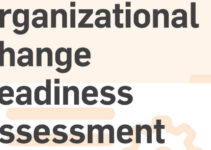Change at change is anything that disrupts the existing routine, operations, team members, roles, responsibilities, and duties. Implementing and adopting change is significant for all businesses and companies to remain competitive in the changing business environment. The change at work could be the new technology and digital system, new roles, new colleagues, and new managers. Today, we’ll discuss best practices of coping with change at work; importance and benefits, and tips on how to deal with change in the workplace.
Benefits and Importance of Change in the Workplace
- Helps you to build and maintain a positive workplace relationship
- Making sure significant contributions to the working environment
- Amplifying your capability to follow future working situations
- Promoting and improving the professionalism standards
Types of Change in the Workplace
- Remedial change by overhauling the existing framework of hiring, training, recruiting, building and maintaining the culture
- Reorientation changes when the company implements the changes to remain competitive
- Restructural change by realigning and integrating the IT department with others rather than having a separate department
- Reinforcing change by improving the performance of the company
Coping with Change at Work
Let’s discuss the top tips for coping with change at work; they’re as follows;
Open and Honest About Concerns
It is significant to share your concerns and queries with the managers. They give you very useful and helpful information about the workplace change project to improve your comprehension level. While sharing and addressing your concerns about the workplace changes, you should ensure to show a strong commitment to adopt and implement the changes in the daily routine operations.
Encouraging Positive Approach
If you have a positive outlook and perception of the change project, then it greatly impacts your capability to adopt and implement the changes. In order to build a positive outlook, you analyze and consider the change project and how it is improving the working environment and positively impacting your role. If you are perceiving the potential benefits of the change project, then it becomes much simpler and more convenient for you to adopt them.
Discuss with Managers
After executing the changes in the workplace, it is significant to have good communication with your managers and supervisors. They help you to explore the various tasks and activities of the new job and how you could implement the changes incorrectly. While communicating and discussing with managers and supervisors, you should ensure to let them know about your strong commitment to the change project.
Re-analyze Place and Role
While implementing the changes in the workplace, it is useful to follow the new perspective in your new role and how it contributes to the growth and productivity of the department or the company. It helps you to comprehend the fact that how changes are beneficial to you and the company. You should decide whether to pursue a different job role within the same company or not.
Frequent Questioning
While executing the changes, you should ask as many questions as you can to the managers and supervisors who are in charge of policies and procedures. Asking the simplest question would help you to learn a better comprehension of how to complete the task and learn more about the significance of the changes.
Learning New Skills
If the new role for the change project requires you to learn new skills and expertise, then you should participate in the training programs to become comfortable with the change project. The skill development programs would help you to learn about your schedule, subject changes, and how you could execute the changes better.
Support of Closed People
It is necessary to confide and discuss the workplace changes with your friends and close ones. How the changes are impacting your safe space and how you are reducing the stress level. However, a close circle of people know you better and you could offer them valuable insight to adapt and implement the changes.
Early Arrivals
While executing the changes, you should make sure to arrive early in the workplace and give additional time to learn about the changes. instead of arriving at 9:00 AM, you should arrive at 8.30 AM to become ready for the changes.
Collaborating with Colleagues
Once you become familiar with the routine changes of the change program, then it is significant to guide your workers and colleagues to successfully execute the changes. It builds a positive relationship and motivates various teamwork so that you can execute the changes.
Taking a Day Off
When the change program becomes routine, then you should take a day off to decrease the stress level and regain your energy and motivation level to implement the changes successfully. It allows you to get back to work with the new energy and spirit.
Conclusion: Coping with Change at Work |Dealing with Change in the Workplace |Cope with Change in the Workplace
After an in-depth study of coping with change at work; we have realized that change initiative could be highly tiresome and stressful. If you are learning about dealing with change in the work; then you should keep in mind the abovementioned types, benefits, and best practices.
Ahsan is an accomplished researcher and has a deep insight in worldly life affairs. He goes Live 3 days a week on various social media platforms. Other than research writing, he’s a very interesting person.


